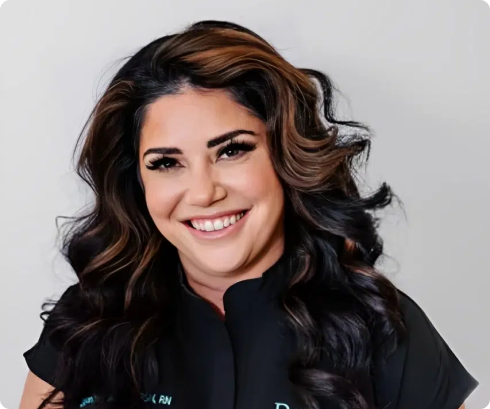Got a double chin that you’ve been wanting to get rid of? Then you probably know that Kybella is one of the most effective options. Now, you have the treatment that can finally target that stubborn fat under your chin. The only concern you may have is figuring out how to pay for it.
While Kybella is FDA-approved and has helped countless people improve their profile, it is not exactly a cheap procedure. One vial can cost around $799, and you’ll likely need multiple vials per session. On top of that, most patients need more than one session to see lasting results. Add it up, and it can be a serious investment.
So you might be asking yourself: Can I use FSA for Kybella? What about my HSA?
The short answer is that Kybella and other cosmetic procedures are usually not eligible for coverage under your flexible spending account or health savings account. The exception is if a doctor determines the procedure is medically necessary. If you are getting Kybella purely to improve your appearance, it’s likely your request will be denied.
Let’s break down how FSA and HSA work for Kybella, and what your options are if they don’t cover your injections.
You can use your FSA to pay for qualified healthcare expenses with pre-tax dollars. This means the money you set aside in your flexible spending account lowers your taxable income while helping you pay for things like prescriptions, doctor visits, or treatments that are considered medical in nature.
When it comes to Kybella, FSA coverage is not usually approved because it is classified as a cosmetic procedure. Since its primary purpose is to improve appearance by reducing submental fat (fat under the chin), it does not fall under standard medical needs.
That said, there is one exception. If a doctor documents that your double chin is causing health-related problems, such as difficulties with swallowing or significant weight loss concerns tied to excess fat in the area, there is a chance it could be reviewed as medically necessary.
However, this is rare, and most patients seeking Kybella are doing so for cosmetic reasons. In that case, you should expect your FSA to deny coverage.
If you can’t use your FSA, you’re probably thinking if your HSA can cover it. However, we’re sorry to break it to you: the same rules apply.
Just like FSAs, HSAs are meant to help you pay for medical services and prescriptions. Cosmetic procedures do not usually qualify.
The only way Kybella could be covered under your HSA is if a doctor deems it medically necessary and provides proper documentation. Without that, the treatment will be considered elective. Since most people choose Kybella to improve the way they look and feel, it is almost always labeled as cosmetic, not medical.
So your FSA or HSA may not cover your Kybella treatment. That doesn’t mean you’re stuck without options. We know the treatment can be expensive, and not everyone can or wants to pay out of pocket.
But here’s the thing: Kybella works. It destroys fat cells under your chin, and once those fat cells are gone, they don’t come back. The treatment is safe, effective, and provides long-lasting results for people who want to reduce their double chin. That makes it hard to walk away from, even if your insurance or savings accounts don’t help pay for it.
Fortunately, there are several alternative payment options that allow you to move forward without taking on the full cost up front. Let’s look at some of the best ones.
One of the most popular ways patients handle the cost of Kybella is through medical credit and financing programs. These are services that work like a line of credit, specifically for healthcare and aesthetic treatments. Instead of paying the full balance at once, you can spread it out over time.
At InjectCo, we offer options like Cherry and CareCredit. Both allow you to get approved for financing and break your Kybella treatment into manageable monthly payments. This flexibility makes a big difference. You can start your treatment now, enjoy the results, and pay it off at a pace that fits your budget.
To learn more, all you have to do is get in touch with the InjectCo team to know how our financing programs work.
Another option is in-house payment plans. Some med spas offer their own financing options without relying on third-party providers.
An in-house plan usually lets you break down your treatment cost into smaller payments directly with the clinic. This can be helpful if you want a more personalized arrangement or if you prefer dealing directly with your provider. It’s also a good choice if you want to avoid applying for another line of credit.
Some med spas offer rewards programs or memberships that give you discounts on treatments over time. For example, you might earn points every time you complete a service, which you can later apply as a discount toward future procedures.
Other clinics offer subscription-style memberships that give you access to reduced rates on injectables, skin treatments, and more.
While these programs are not always the fastest way to reduce the cost of Kybella, they can be useful if you plan to keep up with ongoing treatments like Botox, fillers, or chemical peels. If you’re a regular client, memberships and rewards help you save money over time.
If you’ve been asking, “Can I use FSA or HSA for Kybella?” and realized it’s not an option for most cosmetic cases, don’t get discouraged. You have other ways to cover your treatment without financial stress.
At InjectCo, we understand that cost is one of the biggest concerns patients have when considering injectables. That’s why we’ve partnered with Cherry and CareCredit to offer flexible financing solutions. With these options, you can start your Kybella treatment now without worrying about the full cost upfront.
Book your free virtual consultation today and learn how you can use Cherry or CareCredit for your Kybella treatment.
Kybella is not typically covered by a flexible spending account because it is considered a cosmetic procedure. The only exception is if a doctor confirms it is medically necessary, which is rare. If your FSA does not cover it, you may want to discuss financing options with your provider so you can continue with treatment without paying the full cost at once.
Kybella is usually not covered by insurance because it is considered a cosmetic treatment rather than a medical necessity. Unless a doctor documents that it is required for health reasons, most insurance plans will not approve it. If cost is a concern, InjectCo offers financing options that let you start treatment now and pay over time.
Cosmetic procedures are not usually covered by a flexible spending account because they are viewed as elective treatments. The only time an FSA may cover them is if a doctor confirms the procedure is medically necessary, such as reconstructive surgery after an accident. Since approvals are rare, it’s important to consult your provider before scheduling any treatment with the expectation of using FSA funds.

